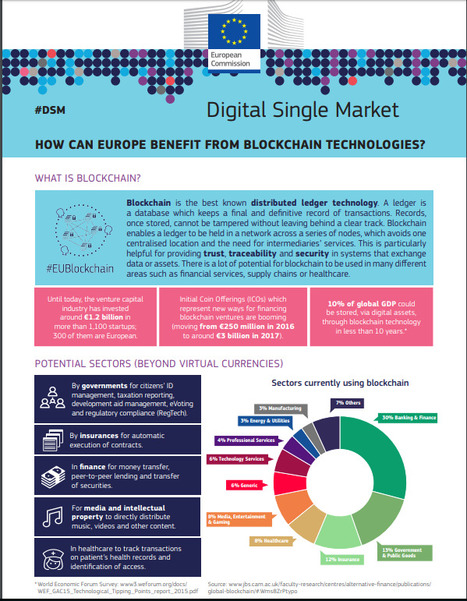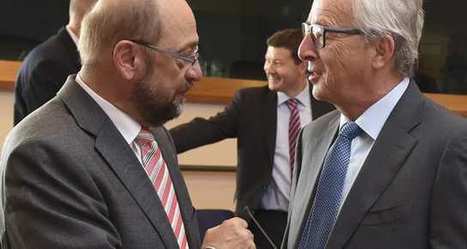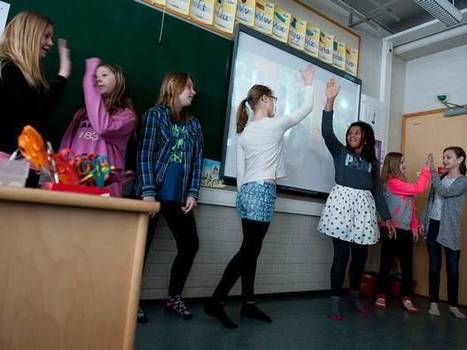How can Europe benefit from blockchain technologies?
Digitising European Industry
ICT Innovation
Next Generation Internet
Boosting European digital industry
Blockchain is the best known distributed ledger technology. A ledger is a database which keeps a final and definitive record of transactions. Records, once stored, cannot be tampered without leaving behind a clear track. Blockchain enables a ledger to be held in a network across a series of nodes, which avoids one centralised location and the need for intermediaries’ services.
This is particularly helpful for providing trust, traceability and security in systems that exchange data or assets. There is a lot of potential for blockchain to be used in many different areas such as financial services, supply chains or healthcare.
European Commission launches the EU Blockchain Observatory and Forum
Brussels, 1 February 2018
The Commission launched today the EU Blockchain Observatory and Forum with the support of the European Parliament, represented by Jakob von Weizsäcker responsible for the recent report on virtual currencies.
The Blockchain Observatory and Forum will highlight key developments of the blockchain technology, promote European actors and reinforce European engagement with multiple stakeholders involved in blockchain activities.
Blockchain technologies, which store blocks of information that are distributed across the network, are seen as a major breakthrough, as they bring about high levels of traceability and security in economic transactions online. They are expected to impact digital services and transform business models in a wide range of areas, such as healthcare, insurance, finance, energy, logistics, intellectual property rights management or government services.
http://europa.eu/rapid/press-release_IP-18-521_en.htm
Learn more / En savoir plus / Mehr erfahren:
https://www.scoop.it/t/21st-century-learning-and-teaching/?&tag=blockchain
Via Gust MEES



 Your new post is loading...
Your new post is loading...















How can Europe benefit from blockchain technologies?
Digitising European Industry
ICT Innovation
Next Generation Internet
Boosting European digital industry
Blockchain is the best known distributed ledger technology. A ledger is a database which keeps a final and definitive record of transactions. Records, once stored, cannot be tampered without leaving behind a clear track. Blockchain enables a ledger to be held in a network across a series of nodes, which avoids one centralised location and the need for intermediaries’ services.
This is particularly helpful for providing trust, traceability and security in systems that exchange data or assets. There is a lot of potential for blockchain to be used in many different areas such as financial services, supply chains or healthcare.
European Commission launches the EU Blockchain Observatory and ForumBrussels, 1 February 2018
The Commission launched today the EU Blockchain Observatory and Forum with the support of the European Parliament, represented by Jakob von Weizsäcker responsible for the recent report on virtual currencies.
The Blockchain Observatory and Forum will highlight key developments of the blockchain technology, promote European actors and reinforce European engagement with multiple stakeholders involved in blockchain activities.
Blockchain technologies, which store blocks of information that are distributed across the network, are seen as a major breakthrough, as they bring about high levels of traceability and security in economic transactions online. They are expected to impact digital services and transform business models in a wide range of areas, such as healthcare, insurance, finance, energy, logistics, intellectual property rights management or government services.
http://europa.eu/rapid/press-release_IP-18-521_en.htm
Learn more / En savoir plus / Mehr erfahren:
https://www.scoop.it/t/21st-century-learning-and-teaching/?&tag=blockchain